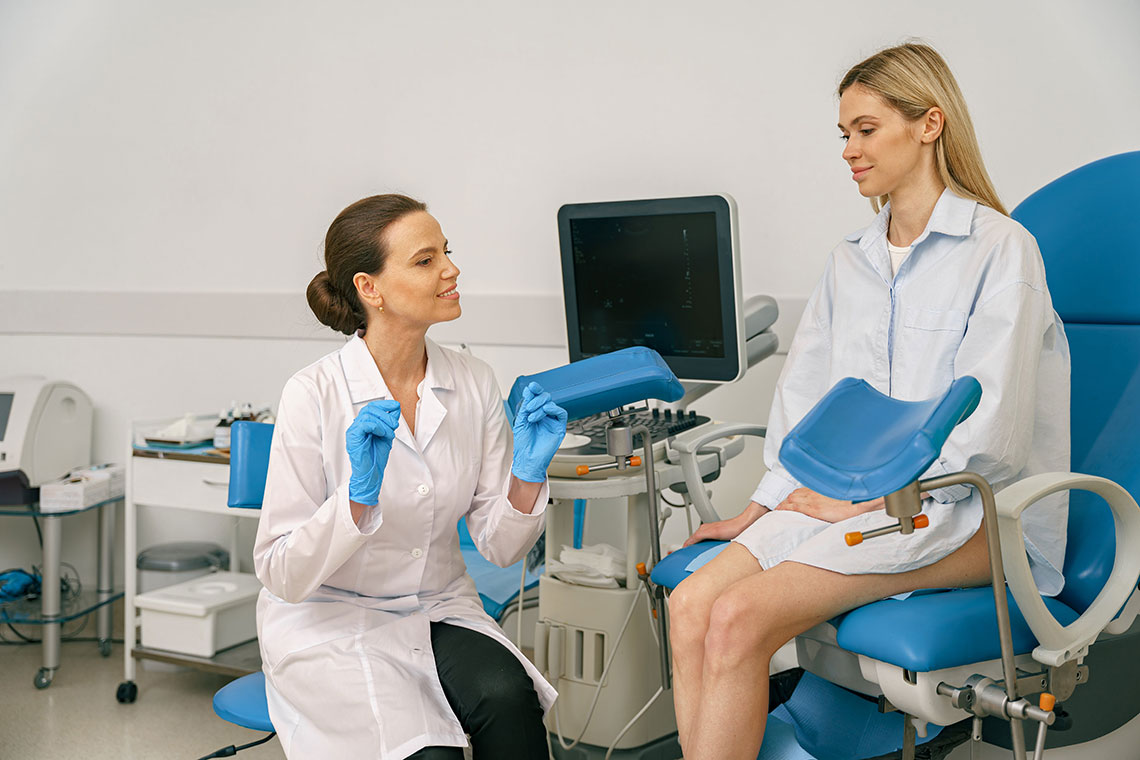
Nexplanon Insertions and Removals Available
Deliveries at MountainView Hospital

Gynecological care is a cornerstone of women’s health, offering vital support from adolescence through the later stages of life. From navigating the challenges of puberty to managing menopause symptoms, regular gynecological checkups and personalized care ensure that women can live healthy and informed lives. Understanding the importance of comprehensive gynecological care at every stage helps women take control of their health and well-being, regardless of age.
The first visit to a gynecologist is an important milestone for adolescent girls, typically recommended between the ages of 13 and 15. This visit helps establish a foundation for future care, addressing concerns such as menstruation, puberty, and sexual health in a supportive, educational environment.
Adolescents often experience a range of concerns, from irregular periods to questions about their changing bodies. Gynecologists can help young women understand what’s normal during puberty, providing advice on menstrual health and self-care during this pivotal time.
For teenagers, discussions around contraception and safe sex are vital. Gynecologists provide education about sexually transmitted infections (STIs), safe sex practices, and the importance of informed decision-making when it comes to sexual health.
Young women may seek advice on birth control methods, whether for contraception or managing conditions like heavy periods or acne. Options like birth control pills, patches, or intrauterine devices (IUDs) are commonly discussed based on individual needs.
During their 20s and 30s, many women prioritize reproductive health. Regular pelvic exams, Pap smears to detect cervical cancer, and STI screenings are key components of routine gynecological visits. These screenings help maintain reproductive health and detect any issues early on.
Pap smears are essential in detecting early signs of cervical cancer. Regular pelvic exams also help identify conditions such as ovarian cysts or fibroids. These exams are typically recommended every three years for women aged 21 to 65.
If you're planning to start a family, your gynecologist will focus on preconception health. This may include fertility assessments, lifestyle advice, and discussions about genetic screenings or vaccinations that may impact pregnancy.
For women facing fertility challenges, gynecologists can provide assessments and recommend treatments such as ovulation-inducing medications or assistive reproductive technologies like IVF.
Hormonal imbalances can cause irregular periods, mood swings, and even fertility issues. Common conditions like Polycystic Ovary Syndrome (PCOS) or thyroid disorders are often the culprits, and a gynecologist can help diagnose and manage these conditions.
Treatments may involve lifestyle changes, medications, or hormone therapy to regulate the body's natural hormonal cycles.
Perimenopause typically begins in a woman's 40s and is marked by changes in hormone levels and the menstrual cycle. Symptoms can range from irregular periods to hot flashes and mood changes, all of which can be managed with the right care and advice.
As women age, the risk for certain cancers increases, including ovarian and uterine cancers. Regular screenings and discussions with a gynecologist can help detect early signs and lead to prompt treatment if necessary.
Menopause marks the end of a woman’s reproductive years, typically occurring in the late 40s or early 50s. This stage is characterized by the cessation of menstruation for 12 consecutive months and various physical and emotional changes.
Common symptoms of menopause include hot flashes, night sweats, and vaginal dryness. Your gynecologist can provide strategies to manage these symptoms, ranging from lifestyle adjustments to medical treatments like hormone replacement therapy (HRT).
Hormone replacement therapy involves supplementing estrogen and progesterone levels to relieve menopause symptoms. It's a common treatment for women experiencing significant discomfort during menopause.
HRT can reduce the severity of hot flashes, night sweats, and vaginal dryness, but it’s not without risks. Studies have shown potential links between HRT and increased risks of certain cancers or cardiovascular issues, so it’s essential to discuss with your gynecologist.
Regardless of age, regular gynecological screenings are crucial for maintaining reproductive health. Pap smears, mammograms, and bone density scans all play a role in detecting issues early and improving outcomes.
A condition where the tissue that normally lines the inside of the uterus grows outside it, causing pain and potentially impacting fertility.
PCOS is a hormonal disorder that can lead to irregular periods, acne, and weight gain. Managing PCOS often involves medication and lifestyle adjustments.
Fibroids are non-cancerous growths in the uterus that can cause pain and heavy periods. Depending on their size and symptoms, treatment may involve medication or surgery.
Hormonal fluctuations can have a significant impact on mental health. Whether it’s the mood swings of PMS, the emotional toll of infertility, or the stress of menopausal symptoms, addressing both physical and mental well-being is essential.
Gynecological care also involves sexual health education, ensuring women maintain safe, healthy, and fulfilling sexual relationships. Open conversations about sexual well-being with your partner and healthcare provider are key.
Gynecological health is an essential part of a woman’s overall health and well-being. From adolescence to menopause, regular checkups and screenings help women maintain their reproductive health and identify any potential issues early on.
Gynecological care is crucial at every stage of a woman’s life. From addressing adolescent concerns to managing menopause symptoms, comprehensive care empowers women to take control of their health. Regular visits to a gynecologist, along with screenings and preventive care, ensure that women can maintain a high quality of life and catch any potential issues before they become serious.